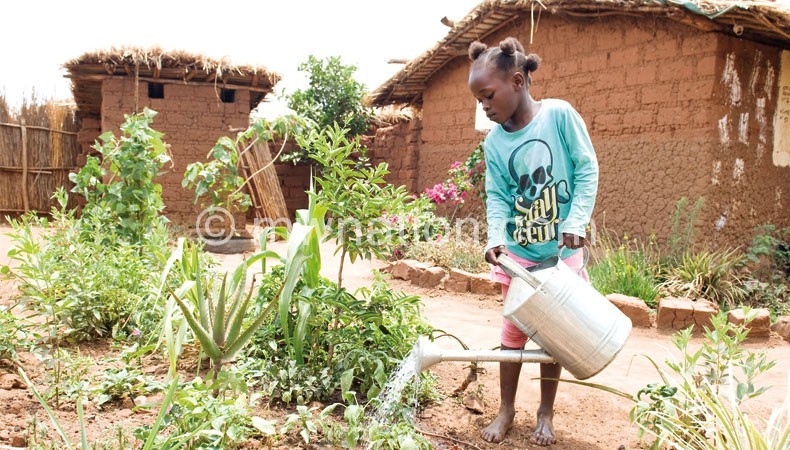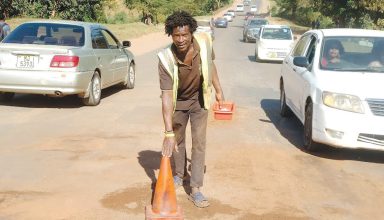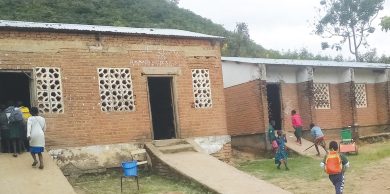Using skills to make a difference

Ramazan Masumbuko, 23, is not your ordinary refugee. The trained journalist does not want to sit on his laurels and waste time at Dzaleka Refugee Camp in Dowa, lest his skill becomes rusty.
Masumbuko, who comes from South Kivu, Fizi Zone in Baraka City in Democratic Republic of Congo (DRC), has been operating a community radio station at the camp, keeping his fellow refugees entertained and up to date with news.
He came to Malawi on November 31 2011, and was directed by immigration officers to United Nations High Commission for Refugees (UNHCR). The UNHRC officials took him to Dzaleka Refugee Camp.
“I faced many challenges at Dzaleka, such as lack of sufficient food. But it was better to stay in the refugee camp and starve than live in DRC where my life was at risk,” Masumbuko says.
Not wanting to lose his journalism skills, he hatched an idea to start a community radio station at the camp.
“I realised that there was lack of a good medium for communication at the refugee camp, so I decided to start a community radio station. I sold the idea to Jesuit Refugee Service [JRS] at the camp, who shared the idea with UNHCR. It is UNHCR which brought two microphones, one amplifier and one loud speaker which I use,” says Masumbuko.
But this is a different community radio station as people do not need a radio to listen to programmes. The community at Dzaleka listens to this radio through a loud speaker which is put on the roof of a building that houses the radio.
The radio station broadcasts programmes on cultures of the five major nationalities at the camp.
“We also have programmes on Malawi culture. We want refugees to learn some things from Malawians,” says Masumbuko, who is working with other eight refugees.
Director of Sexual and Gender Based Violence Committee at the camp, Joseph Kashindi, says the community radio has played a big role in sensitising refugees to the dangers of sexual and gender-based violence.
Apart from the radio, Masumbuko and his colleagues have started a magazine called Dzaleka Camp Magazine whose first edition will be published soon by UNHCR.
He holds a bachelor’s degree in journalism from Hope Africa University in Burundi, but left DRC without them. As such, he is currently studying for a three-year online diploma in community communication and journalism with Regis University of United States of America.
“I left DRC without my academic documents because I could not go home to collect them when my life was in danger. So, I enrolled with Regis University to have new academic documents,” he says, adding: “I hope to find sponsorship to study at University of Malawi (Unima) and hopefully secure a job locally in future.”
Masumbuko, who has worked with DRC’s Lukala Television Station and Baraka Community Radio from 2005 to 2011 as a news reporter, does not stay idle at the refugee camp as he has also been working on different documentaries on how children live at the camp.
“Many children at this camp have no parents and life is very tough for them. So I have made documentaries about this so that people can compare life in the refugee camp and outside the camp,” he says.
This is probably an issue that strikes a chord with him. His mother, father and brother were killed in 2010 by a member of a rebel group.
“I was fortunate to run away,” says Masumbuko.
That was the beginning of a journey to unknown destination where he would become a refugee. He left all his property, including three motor bikes, and travelled to Tanzania, where he learnt that the country was not accommodating more refugees at that time, so he headed for Malawi.
When he settled at Dzaleka, Masambuko fell in love with Hasha Masemo, a Congolese woman and they got married.
Together they have two children, a one-year-old boy and a seven-year-old stepdaughter from his wife’s previous relationship. He hopes his children will grow up in a safer environment, unlike him.





